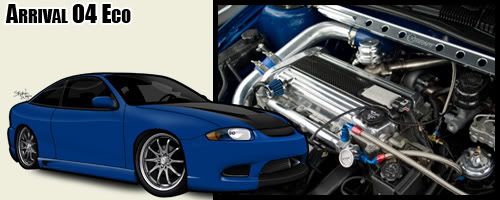Almost everyone makes their intercooler pipes out of aluminum. 2" would probably be okay, but 2.5" would be better.
Plenty of people use steel IC pipes, since most people can't weld aluminum. Get the thinnest gage you're comfortable welding.
For a Saab setup, definately 2".
 fortune cookie say: better a delay than a disaster
fortune cookie say: better a delay than a disaster
www.columbiarivermandrelbends.com - high quality material and build kits available. I think steel 16 gage is plenty. I'm using aluminum since it's lighter and easier on couplings. I just used the pre-bend and straight pieces, cut my own angles from them. Mocked it up with couplings and masking tape or whatever you need. Then I had marked all the ends and had it Tig welded by a professional.
Thank you very much for your insite. very helpful
lol people use steel for charge pipes?????
I uses stainless and most use aluminum.
Steel is great if you want to have humidity from the air condense in the pipe, therefore rusting, and you can have rust getting forced into your intake!
That sounds awesome to me!
I pretty much did the same thing heavyclutch did.
I mocked up my setup, and put a marker line on each pipe, that would show where to align them, then I had them welded.
I had to go from the shop to the garage quite a bit, but it turned out great.
i ran 2.5" aluminum on my saab kit seen in sig....

Phil Lindsay wrote:lol people use steel for charge pipes?????
I uses stainless and most use aluminum.
Steel is great if you want to have humidity from the air condense in the pipe, therefore rusting, and you can have rust getting forced into your intake!
Yes, I've seen plenty of steel charge pipes, and TONS of steel intakes (even from $$$ companies). I like to do my own welding, and I can't do stainless or aluminum. It's also a lot easier for me to powdercoat carbon steel than the others. Steel is significantly cheaper to top it off. Anyway, my turbos tend to lightly oil the inside of the pipes

 fortune cookie say: better a delay than a disaster
fortune cookie say: better a delay than a disaster
If your turbo is "oiling" your pipes, that probabyl not a good thing either.
It would be ok if your PCV system vented into the intake, because that would lighty coat the pipes too.
But I doubt many people bother routing that, because of the extra fabrication.
Phil Lindsay wrote:If your turbo is "oiling" your pipes, that probabyl not a good thing either.
It would be ok if your PCV system vented into the intake, because that would lighty coat the pipes too.
But I doubt many people bother routing that, because of the extra fabrication.
Turbo oil seals on the J were shot, yes. My DSM PCV is returned to the intake, yes.
 fortune cookie say: better a delay than a disaster
fortune cookie say: better a delay than a disaster
Im thinking about keeping my PCV vent to atmosphere, and re-circulating my BOV
Phil Lindsay wrote:Im thinking about keeping my PCV vent to atmosphere, and re-circulating my BOV
I got nailed at emissions for venting, although it was a temporary fix at the time. Also, my DSM is still on the stock MAF, so I have no choice but to recirculate the BOV.
 fortune cookie say: better a delay than a disaster
fortune cookie say: better a delay than a disaster
i use 1/16" (0.65") wall thickness.
JOE L wrote:i use 1/16" (0.65") wall thickness.
Im just picky when it comes to specs.
Was your pipe advertised as that or did you measure it?
Just to clarify, as far as I know there is no pipe exactly 1/16 (.0625) or .065.
15 ga. pipe is .0673, and 16 ga. pipe is .0598.
Just letting everyone know!

Phil Lindsay wrote:JOE L wrote:i use 1/16" (0.65") wall thickness.
Im just picky when it comes to specs.
Was your pipe advertised as that or did you measure it?
Just to clarify, as far as I know there is no pipe exactly 1/16 (.0625) or .065.
15 ga. pipe is .0673, and 16 ga. pipe is .0598.
Just letting everyone know! 
They may list it slightly thinner because of the bends?
 fortune cookie say: better a delay than a disaster
fortune cookie say: better a delay than a disaster






